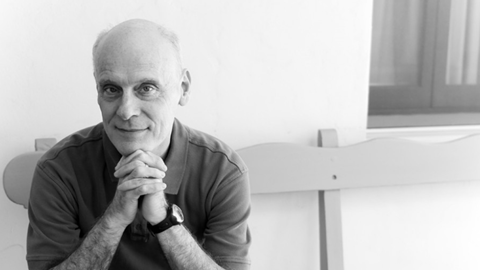Apologist Joel Furches interviewed astronomer Dr Hugh Ross about science and his belief in God
Dr Hugh Ross has a PhD in astronomy and has done research on quasars and galaxies at the California Institute of Technology. He has published numerous papers in peer-reviewed secular science research journals.
Beginnings
Dr Hugh Ross has always been something of a savant. His parents were convinced of his interest in science at 2-years-old, but Ross traces his serious scientific inquiry back to the age of 7. As a young child, Ross began to wonder why stars were hot. In order to investigate the topic, he began to read about five books on astronomy every week.
As he grew, so did his dedication to astronomy. When Ross was a teenager, he and his father built their own telescope to look at the birth of stars in the Orion Nebula. This tremendous feat won him the British Columbia wide science fair.
But another life-changing event occurred during Ross’ teenage years: he began to study the Bible. Ross approached the Bible as a sceptic. He wanted to determine whether this book was a collection of made-up tales from a bygone age, or if it might have some explanatory power.
As an astronomer in the making, Ross focused on the origin of the Universe as his point of inquiry. Ross told me:
“What motivated me to study the Bible was first, my studies in astronomy and physics that convinced me that there had to be a God to explain the existence of the Universe and second, my failure to find consistency between science and the other major religions (Hinduism, Buddhism, Islam, Bahai, etc.). The evidence that most convinced me was the Bible’s demonstrated predictive power. I found over 200 places in the Bible where it had accurately predicted a future scientific discovery. I also found over 500 places where it had accurately predicted a future event in human history. Not once in 18 months of searching had I found a single provable error or contradiction in the Bible. Such amazing and consistently accurate predictive power proved to me that the Bible’s message had to come from a being who not only knows the future but has complete control over the future.”
Read more:
Can a Quantum Physicist really believe in God?
Are there limits to scientific explanations?
Does Big Bang cosmology point to a creator?
How a sceptical engineer discovered that science opened a way to faith
Reasons to believe
Ross’ study of the Bible only fortified his fever for the pursuit of science. After High School, Ross intensely pursued his scientific career. He earned his BSc in physics from the University of British Columbia, then his MSc and PhD in astronomy from the University of Toronto.
While Ross’ postdoctoral work focused on research into the cosmos, Ross found his mission in life by reconciling his two loves: astronomy and theology.
Ross founded the organisation Reasons to Believe, and dedicated his time to developing and proclaiming new evidence from the book of nature (science) for the truth of the Bible and the Christian faith. His organisation hires mostly scientists in order to do research and put together material showing that science supports rather than refutes the Christian worldview.
Ross has authored or co-authored 16 books on scientific apologetics. In addition to his work with RTB, he also serves as an adjunct faculty member at three different seminaries, and has lectured on science-faith topics at over 300 colleges and universities.
Get access to exclusive bonus content & updates: register & sign up to the Premier Unbelievable? newsletter!
The conversation between science and faith
While Ross has found the scientific community is not always friendly to his point of view, he welcomes the challenges they bring, because he finds the dialogue to be helpful and constructive:
“Certainly on many occasions in my work as a scientist, I have been ridiculed for being a Christian and for taking the Bible as the inspired, inerrant, authoritative word of God. However, each of those occasions has led to opportunities for dialogue about science and the Bible or science and the Christian faith. Many times those dialogues have resulted in scientists who were strongly committed to an atheistic worldview submitting their lives to Jesus Christ and publicly testifying of their faith in Christ.”
Ross himself sees no conflict at all between science and Christian belief. In fact, he believes the origin of the scientific method finds its roots in the Bible:
“As the apostle puts it in his first letter to the Thessalonians: ‘Test everything. Hold on to the good.’ That is, nothing is to be believed until it is first put to the test. However, it is not enough to merely establish that something is true. Biblical faith has two components. The Bible exhorts to act upon, or live out, what we have determined to be true.
“I use the same method for interpreting the Bible as I do for interpreting the book of nature. Also, my Christian worldview encourages me to fully integrate the Bible’s 66 books with all the disciplines that make up the scientific enterprise. I am committed to constructive integration as a means to receive, understand and submit to new truth.”
Ross, science and belief
Ross has shown himself to be a brilliant man, whose belief in scripture was confirmed, rather than debunked by his knowledge of astronomy. His work has proven to be consistent with science and not inconsistent with his Christian worldview.
Ross’ life and accomplishments are an indication that Christianity and science may work hand-in-hand; not at odds.
Joel Furches is an apologist, journalist and researcher on conversion and deconversion, based in the USA.























